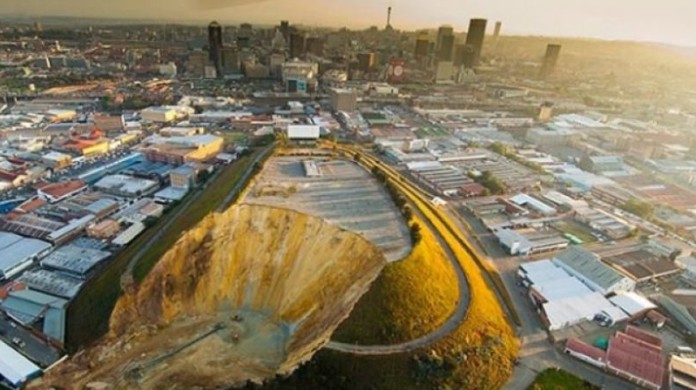
THE South African mining industry staged a modest recovery during 2017 with the 25 companies covered in the annual survey carried out by accounting firm PwC reporting an overall net profit of R17bn compared with an overall loss of R46bn for 2016.
That resulted from improvements in some commodity prices – in particular iron ore, chrome and manganese – while, according to the report “… the cost control measures that the industry took ownership for started to pay off with more manageable operating cost increases”.
So much for the good news. The bad news included a further drop of 25% in the amount of dividends paid to shareholders to R6bn (previous year R8bn) while capital expenditure remained flat at R48bn and the overall market capitalisation of the companies decreased “… almost to the low levels of 2015”.
The drop in market capitalisation – to R420bn at end-June from R560bn a year previously – was driven primarily by falls in the share prices of gold mining and platinum mining companies. These were hit by falling metal prices with an additional negative impact coming from the fallout from South Africa’s political situation.
The report again highlighted the precarious position of the platinum producers despite a modest improvement in their EBITDA (earnings before interest, tax, depreciation and amortisation) margins to 12% from last year’s 9%.
PwC mining assurance partner and project leader, Andrew Rossouw, repeated the observation he made at last year’s presentation that a realistic profit margin level for a mining company was above 30%.
But – arguably even worse – was the assessment by PwC Africa energy utilities and resources leader Michal Kotze that “… the 2017 year has to be described as a year of policy uncertainty and real questions over the long-term sustainability of the industry”.
Kotze added that: “It is important that the industry and the Minister (of Mineral Resources) adequately address concerns around the [Mining] Charter and come to a workable solution that will support the long-term sustainability of the industry while also addressing transformation objectives. The South African mining industry cannot afford the current uncertainty”.
Asked at a presentation given to financial media in Johannesburg today to explain why the South African government had taken such a hostile stance towards the country’s mines, PwC partner Sizwe Masondo replied: “Government is under a lot of pressure over the inequalities in the country that need to be addressed. The issue for me is the approach that has been taken by the Government in trying to address these concerns”.
Despite the current negative situation facing the country’s mines – in particular the confrontation underway with government over the latest draft of the mining charter – the PwC executives remained optimistic on the future of the South Africa mining industry.
According to Masondo: “We believe common sense will prevail. There are still enough tools – such as the courts – that the industry can use to remedy such situations”.
Rossouw commented: “The South African mining industry absolutely has a future. It is struggling at the moment in the short-term but it is a long-term industry – it has a fantastic resource base – and it has a long-term future”.










